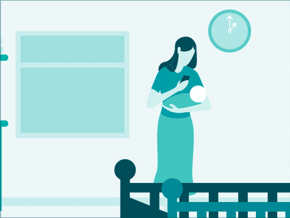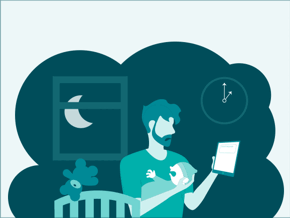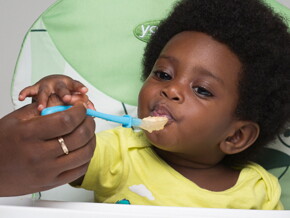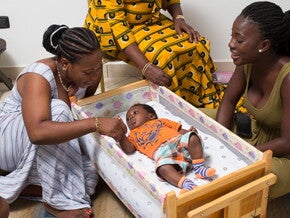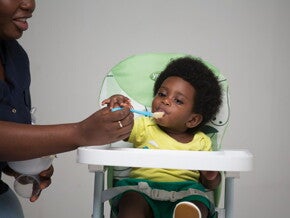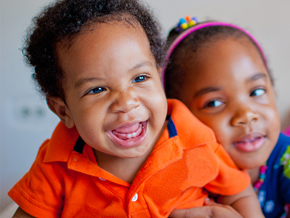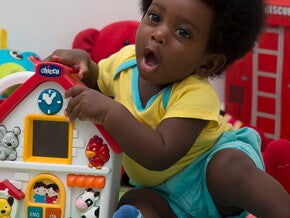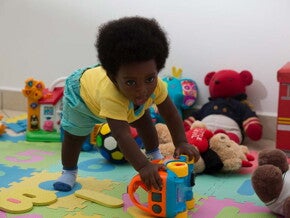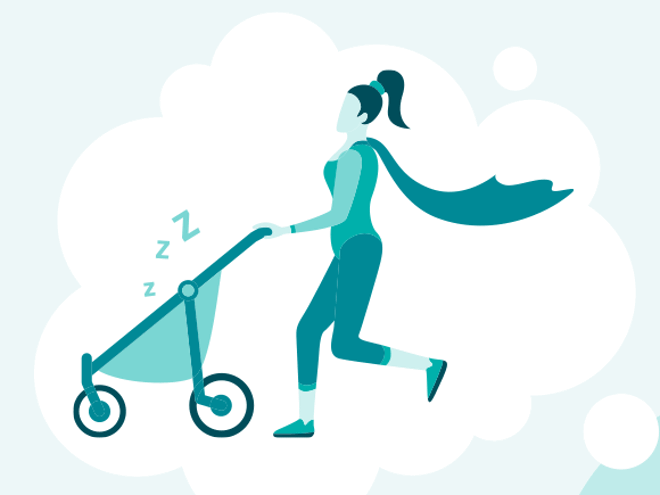
Raising a baby doesn’t come with a handbook, but young parents often feel guilty that they’re lacking the “expert parenting skills” they see around them. Everywhere they turn, from a grocery run to scrolling through social media, young parents are constantly observing the abilities of other parents, their interactions with their children, and a general “I’ve got this” attitude—making new parents feel guilty that they’re not applying themselves to their new role with the same ease.
Much of the guilt experienced by new parents has to do with their own high expectations and assumptions they’ve made about what it should feel like to be a parent. In some cases, new parents may be measuring themselves against their own childhoods. Good or bad, these memories can conjure up deep feelings of guilt and inadequacy. For instance, if a parent had a tough childhood, the stakes suddenly become that much higher for them to give their child a better experience. Conversely, if they had an extraordinary childhood, they may feel guilty that they’re not offering that same level of presence and love.
The guilt new moms face can be particularly difficult, especially in cultures where the woman is almost entirely responsible for raising the child. All over the world, women feel guilty for not being “perfect” moms—for doubting their decisions, feeling lonely and disconnected, struggling with feeding, or that they’re just not doing enough. Moms going through post-partum depression or waves of baby blues can feel guilty about not feeling overjoyed about motherhood.
Guilt is often mercurial in nature—not seeming to come from any one thing. And it’s pervasive. All parents seem to experience some level of guilt, regardless of culture or socioeconomic class. This could mean that a parent’s guilt isn’t coming from a lack of resources, but rather an internal struggle with their own high expectations.
In countries with more limited access to quality/trustworthy information and healthcare, parents can feel guilty about not being educated on how best to raise their child. They may have to rely on the advice of family and friends, giving up a sense of autonomy and making them feel additional guilt for being a burden on those around them. Lack of access is one of the greatest challenges new parents face in countries like India, Mexico and Brazil where a solid healthcare system has yet to take hold.
Maternity leave, and other resources provided during the first few months of parenthood, are inconsistent in many countries throughout the world. Parents in China, Nigeria, Mexico and Poland especially feel more pessimistic about having enough health and wellbeing support for childbirth recovery and postpartum care. This can have a lasting impact on new parents who may feel guilty that they’re not able to find their footing on their own.
One of the toughest challenges in correcting this cycle of guilt is that it’s largely invisible. Parents will often put on their best face for the outside world, with the real suffering happening at home. Even if a close friend or family member is aware of these feelings and wishes to help, it can be difficult to unlock the insecurities at the heart of the problem. This is where the real effort comes in. Loved ones need to take on a proactive role in getting young parents out of their own heads and talking about what’s really going on with them.
Sometimes just saying something warm-hearted can get the conversation rolling, like “it must be hard having to seem like a perfect parent all the time, when everyone knows NONE of us had perfect parents.” Highlighting the absurdity of perfectness and the common challenge that all parents face can loosen up the mood and get things flowing.
Support can also be shown in more subtle ways by demonstrating a respect for what a new parent is going through and making them feel seen. For instance, having a maternity room provided at work can make a young mom feel like her peers are acknowledging the complexity of her dual role as mom and a professional, and are welcoming her back into the fold in the most supportive way they can.
When new parents feel positive about their child’s health and wellbeing, they tend to experience far less guilt. Feeling that they’re in a supportive environment can bolster their spirits and have a deep and lasting impact on their mental health. For instance, when communities and organizations offer parent-and-baby activities it gives young parents a way to interact with and learn from each other, reminding them that no one is perfect when it comes to parenting. By encouraging these types of connections, communities can show their support for young families, reminding them that raising a child is a responsibility we all share.
The irony is that as parents beat themselves up over not knowing what to do, or criticizing themselves for their faults, the baby sees the parent as the light of its life – a real life superhero that somehow manages to provide them with all of the love, comfort and safety they could ever hope for.
Discover the findings from our Parenting Index 2021 study www.theparentingindex.com
https://www.babyandme.com.gh/en/loneliness-hyperconnected-world
